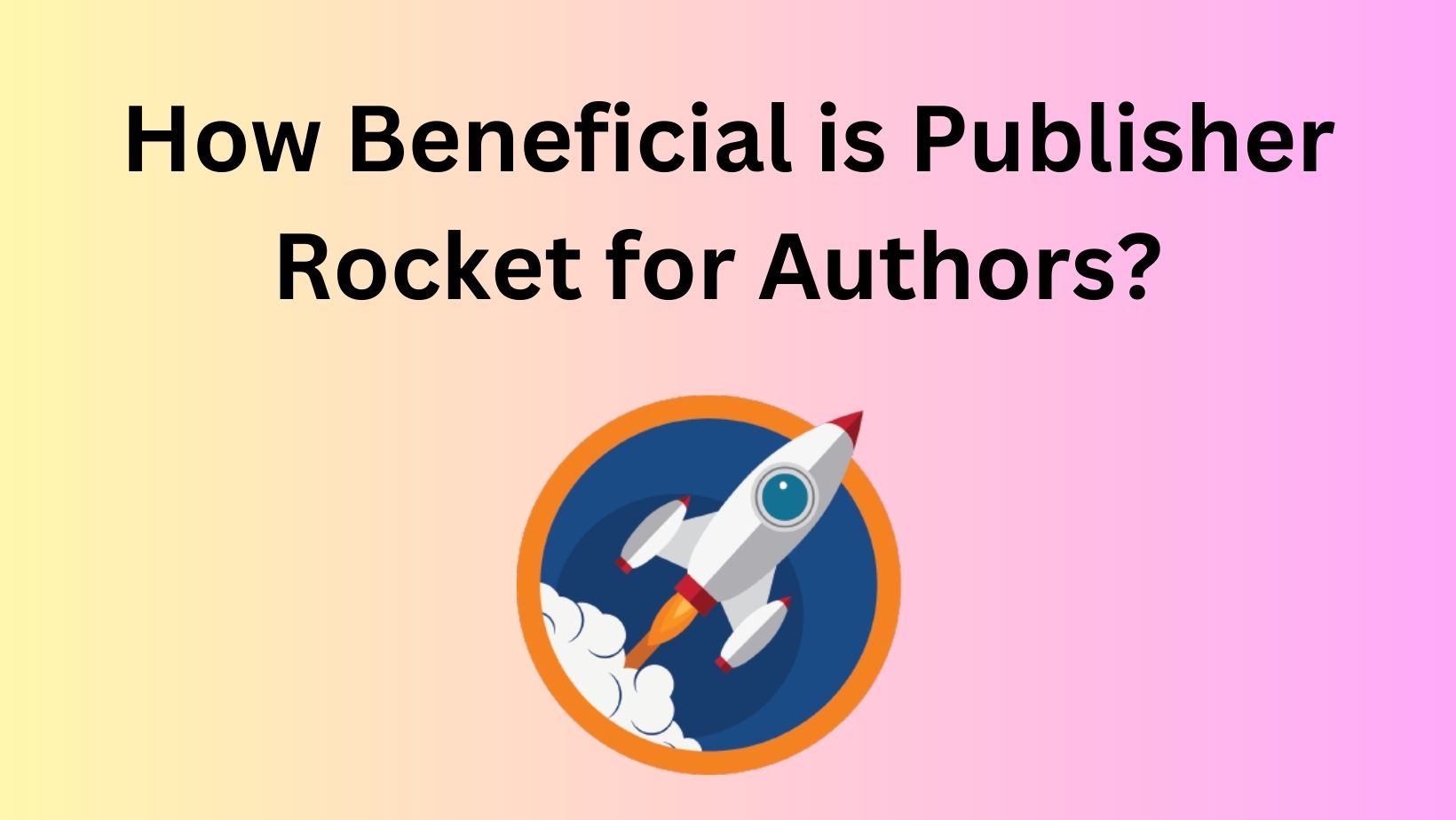In the world of self-publishing, authors face numerous challenges when it comes to finding success. From identifying profitable book niches to understanding market trends, authors need tools that can provide valuable insights and help them make informed decisions. One such tool that has gained popularity among authors is Publisher Rocket. In this blog post, we will explore the benefits of Publisher Rocket and how it can significantly impact an author’s journey, from discovering profitable niches to optimizing book visibility.
By eliminating much of the uncertainty surrounding keyword and category selection for Amazon KDP, it simplifies the process.
However, it’s important to note that Publisher Rocket is not free. This raises the question whether it offers good value for money, particularly for new authors.
Table of Contents
What Publisher Rocket actually does?

Publisher Rocket provides four essential tools designed to enhance authors’ book discoverability among Amazon’s book buyers:
- Keyword Research: This tool aids in discovering the specific phrases Amazon shoppers use to search for new books. It provides valuable data on monthly search volumes and the level of competition for each phrase.
- Category Research: When publishing a book, authors are limited to choosing categories from Amazon’s predetermined BISAC categories (genres). However, there are numerous hidden categories that can be explored using Publisher Rocket. It allows authors to list their books in up to ten less competitive categories, expanding their reach.
- Competition Analysis: Authors can conduct searches for books similar to theirs, examining their listed categories, pricing, daily and monthly sales, days since publishing, and bestseller rank. This information enables authors to gain insights into their competition and make informed decisions.
- AMS Keyword Search: For authors investing in Amazon advertising, this tool assists in finding relevant keywords and phrases to optimize their advertising campaigns.
All these tools are complemented by helpful tutorials that guide authors through their usage.
How good Publisher Rocket perform?
As someone who has been using the program for many years (back when it was known as KDP Rocket), I can attest to its performance. Even with the name change and subsequent upgrades, three constants have remained unchanged.
Firstly, the program is remarkably fast, responsive, and capable of swiftly loading extensive amounts of data. Secondly, it boasts a user-friendly interface, making it incredibly easy to navigate.
While tutorials are available for those who require assistance, the program’s intuitiveness allows users to begin their research immediately. Lastly, regular automatic updates introduce new improvements, ensuring that the tool stays up-to-date.
In addition to its primary purpose of aiding in book promotion, Publisher Rocket has proven to be versatile. Over the years, I have discovered various other applications, such as data research for my self-published articles.
It offers insights into the sales figures required to attain the top position in specific niche book categories, making it an invaluable resource for anyone interested in book data analysis.
Is Publisher Rocket helpful for Self-Publishing Authors?
Many new authors often overlook the significance of keyword and category selection when publishing on Amazon. During the book publication process, they often make hasty guesses, hastily fill in the necessary information, and select only two categories. Consequently, their books end up competing with millions of others, severely limiting their discoverability.
Publisher Rocket removes the guesswork and empowers new authors with real data. By identifying seven search terms frequently used by buyers and adding more relevant categories, authors can significantly enhance their book’s discoverability among Amazon’s book buyers.
While only two categories can be selected during the initial publishing phase, up to ten categories can be added after the book is published. For new authors, Publisher Rocket serves as an invaluable tool that replaces guesswork with data-driven decision-making, ultimately increasing their chances of success on Amazon’s platform.
Fitting the abundance of suggestions into the image above is not possible. The program has generated hundreds of keyword ideas for this particular query. Each suggestion is accompanied by data that assists in making informed choices. Ideally, one should look for keywords with high monthly search volumes and low competition scores.
Now, let’s shift our focus to categorize. Once again, the list of category suggestions is too extensive to be displayed within the image. Unfortunately, there is no total count for the returned queries. Hopefully, this feature will be included in future updates.
However, by scrolling through the list, one can easily identify better and less competitive categories for their book.
Updates are provided Free of Charge.
One notable recent addition is the inclusion of a history of category insights and data. This feature consolidates various data points, making the selection of the best category for a book a much simpler process.
The details encompass the number of sales required to reach the top positions, comparisons between Kindle Unlimited and large publishers, pricing information, average age, average rating, average page count, a graph displaying the top 30 bestsellers, related categories, category overviews, and unique category insights.
Existing users of Publisher Rocket will automatically gain access to this new feature upon their next use of the application.
Rocket offers good value for money.

Priced at $97.00, it needs to be considered in relation to the potential earnings of self-published authors on Amazon KDP, which generally range from $1.50 to $3.00 per e-book sale and slightly more for print book sales. In terms of Kindle Unlimited page reads, the average is approximately $1.45 for a full read.
Therefore, as a rough calculation suggests, the program would need to facilitate an additional 30 to 40 sales to recoup its cost. If an author plans to publish only one book, it becomes a close decision. However, for authors with multiple titles, Publisher Rocket undoubtedly provides good value for its one-time payment.
Personally, having used the program for over five years, I can attest to its long-term value. In comparison, other premium tools and services I subscribe to on an annual basis have accumulated expenses of hundreds of dollars or more throughout the years. Publisher Rocket’s one-time payment model makes it a cost-effective choice.
Niche Discovery Made Easy:
One of the key advantages of Publisher Rocket is its ability to assist authors in finding profitable book niches. By conducting comprehensive keyword research and analyzing data from Amazon, Publisher Rocket provides authors with valuable insights into popular keywords and categories.
This information allows authors to uncover untapped niches, identify high-demand keywords, and evaluate the competition within their chosen genre. By selecting a niche that has both demand and potential, authors can increase their chances of success in a crowded market.
Do Alternatives to Publisher Rocket Exist?
As for alternatives, the primary competitor is KDSpy, which functions as a browser extension when accessing the Amazon site. While it offers similar features for keywords and categories, its limitations stem from being a browser extension. For instance, it is not compatible with Safari and Microsoft Edge and lacks data on monthly search volumes.
Despite the same price point of $97.00, KDSpy frequently offers discounts, enabling users to purchase it for less. Several free alternatives are available as well, with Sonar being the most noteworthy. However, Sonar primarily assists with generalized keyword phrase suggestions.
Advantages and Disadvantages of Publisher Rocket
Consider the following benefits and drawbacks when contemplating a purchase of Publisher Rocket:
Advantages
- Gain complete access to data pertaining to Amazon’s books, e-books, and audiobooks.
- Its user-friendly interface makes keyword and category research a breeze. Discover numerous hidden categories.
- Obtain data regarding monthly search volume.
- Requires only a single payment rather than recurring annual subscriptions.
- Provides free updates for life.
Disadvantages
- There’s no free trial offered, only a 30-day money-back guarantee.
- The necessity for additional clicks to access comprehensive keyword data.
- Lack of total count for query results.
- Data is limited to Amazon’s US, UK, and DE markets.
- There’s no version available for Linux; it’s compatible only with PC and macOS.
Summary
Publisher Rocket serves as a valuable research tool for book marketing. However, it does not possess the magical ability to sell a poorly written book. From discovering profitable niches and optimizing book metadata to analyzing competitors and tracking keyword performance, Publisher Rocket empowers authors to make informed decisions and increase their chances of success.
By leveraging this tool’s insights and data-driven approach, authors can navigate the competitive self-publishing industry with confidence, ultimately reaching a broader audience and achieving their publishing goals.
Excelling in storytelling, having an eye-catching book cover, obtaining book reviews, and actively promoting the book are equally important. Publisher Rocket aids in positioning a book more effectively and enhancing its discoverability among readers on Amazon Stores, thereby potentially leading to increased sales.
I highly recommend Publisher Rocket for those who have or plan to self-publish multiple titles. However, if one only has a single title, the decision becomes more nuanced. Nevertheless, the ability to conduct research and select high-performing keywords and categories can only be beneficial.

